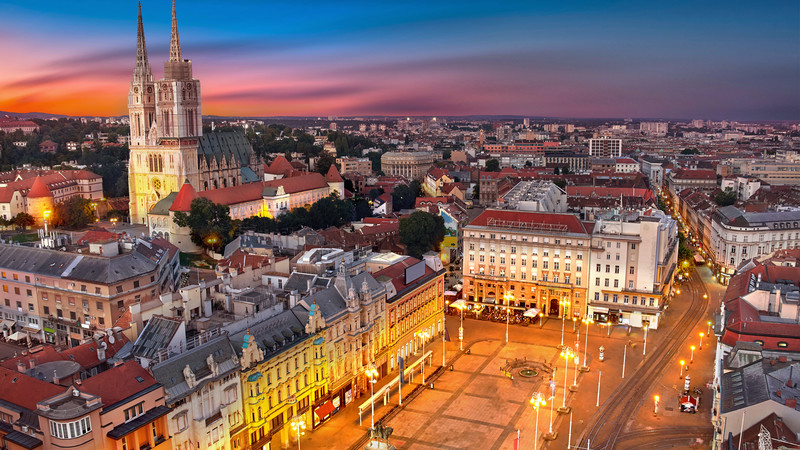Compiled by: Hristo Voynov and Kristijan Fidanovski
1. Two of Montenegro’s opposition parties have ended their two-year boycott of the parliament in light of a meeting with EU Commissioner Johannes Hahn. The decision has caused a rift between these two parties and the pro-Russian Democratic Front, another opposition party, which will continue with the boycott.
2. Mayoral elections for the first city of Moldova have been annulled, creating a state of confusion as to where to go from here. Andrei Nastase, the pro-EU candidate, beat Ion Ceban, the pro-Russian socialist with 52% but the results are now in question since a court has found him to have campaigned during election day. His defense is that the charges are politically motivated and that his opponent did the same. This has lead to protests that are likely to continue, as this scandal has roots in the highly political EU/Russia split that holds Moldovan politics from moving forward.
3. Croatia is facing a difficult choice between keeping its current retirement age of 65 for men and 62 for women and raising it as per the European Union’s advice. As Croatian society keeps aging dramatically, the proportion of the total population that pensioners currently amount to is becoming unsustainable. The argument against raising the retirement age, however, is that life expectancy is lower in Croatia than almost anywhere else in the EU, which means that the retirement age should be kept at a lower bar as well.
4. Czechia’s majority party ANO and the Social Democrats finally agree to form coalition government after months of negotiating, but the deadlock is not over. First, the internal Social Democrat vote led to only 60% support of the coalition, which might not be enough to maintain a much needed following of the party line. Second, the Social Democrats’ nominee for the office of foreign minister, Miroslav Poche, is proving controversial within the coalition because of his campaigning against ANO leader Babis and accusations that he is weak on migrants, a major issue in Czechia. The minority partners, the Communist Party, and ANO are strictly against Poche, and it is unclear if the Social Democrats are willing to compromise on his nomination.
5. The Macedonian parliament has unanimously ratified the name agreement signed last week with Greece. Opposition MPs boycotted the vote, and the president remains opposed to the agreement as well. The government is hoping to receive a date to start negotiations with the EU in June, which will then serve as a boost for the “yes” vote in the September referendum on the name agreement.
6. Hungarian lawmakers passed major legislation this week, the most significant of which is the firmest possible ‘Stop Soros law’, which bans any form of assistance to migrants with the punishment for doing so being a year in prison. This has resulted in a ‘shadow committee’ being formed to help coordinate defending the NGOs and civil society groups that will inevitably be hurt by this, and other related legislature. Also passed was a constitutional amendment regarding preserving Hungary’s Christian culture, creating a new high court, and banning homelessness.
7. The head of Romania’s ruling party, Liviu Dragnea has received yet another corruption sentence, which is subject to appeal. Dragnea has been sentenced to three and a half years in jail for abuse of power. He does not hold any executive function in the country, but he is widely rumored to be calling the shots from behind the scenes.
8. Former Ukrainian Prime Minister Yulia Tymoshenko has publically stated that she is planning to come back to politics in order to run for president in next year’s elections. Tymoshenko led the Ukraine’s Orange Revolution and was the PM from 2007 to 2010, after which she lost the elections to Viktor Yanukovich and was jailed under what are largely considered political motives. While she stated that she wants to improve Ukraine by creating a new constitution and working to end corruption, which is a positive direction, but Tymoshenko wouldn’t be the first to build a movement from such promises.
9. Turkey has become one of the biggest exporters in the Balkans. In the first five months of 2018, Turkish exports have gone up by 22 percent. Exports have been the highest in Bulgaria, followed by Greece, Slovenia, and Serbia.
10. A ‘fake news’ law has been passed in Belarus, threatening to punish anyone that spreads false information on the internet. While fake news has been a major problem around the world, any government attempt to find a solution will have inherent flaws over who gets to decide what counts as fake news. Belarus is not known for a strong civil society, and this law is one other way in which Belarusian media may be censored.


0 comments